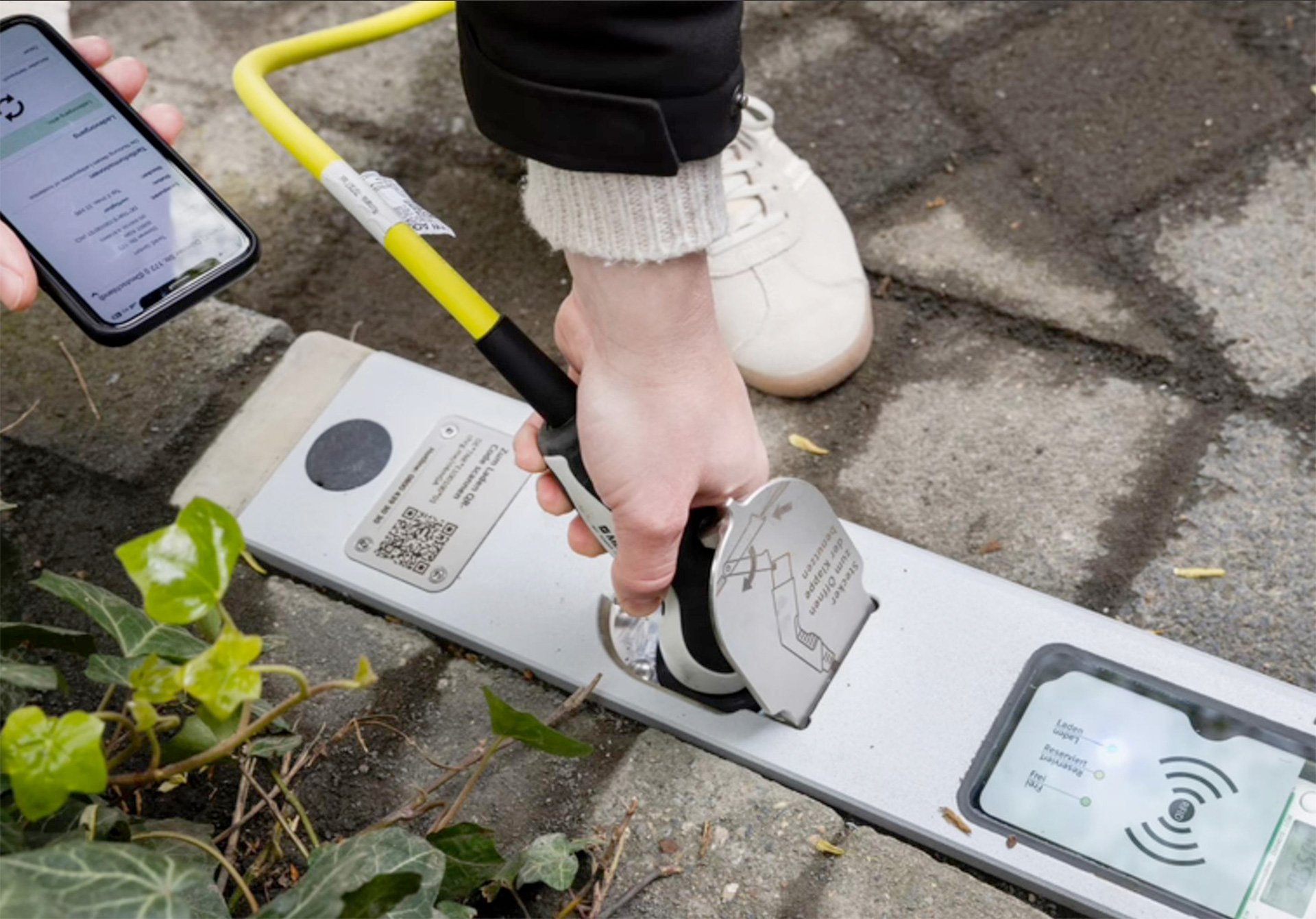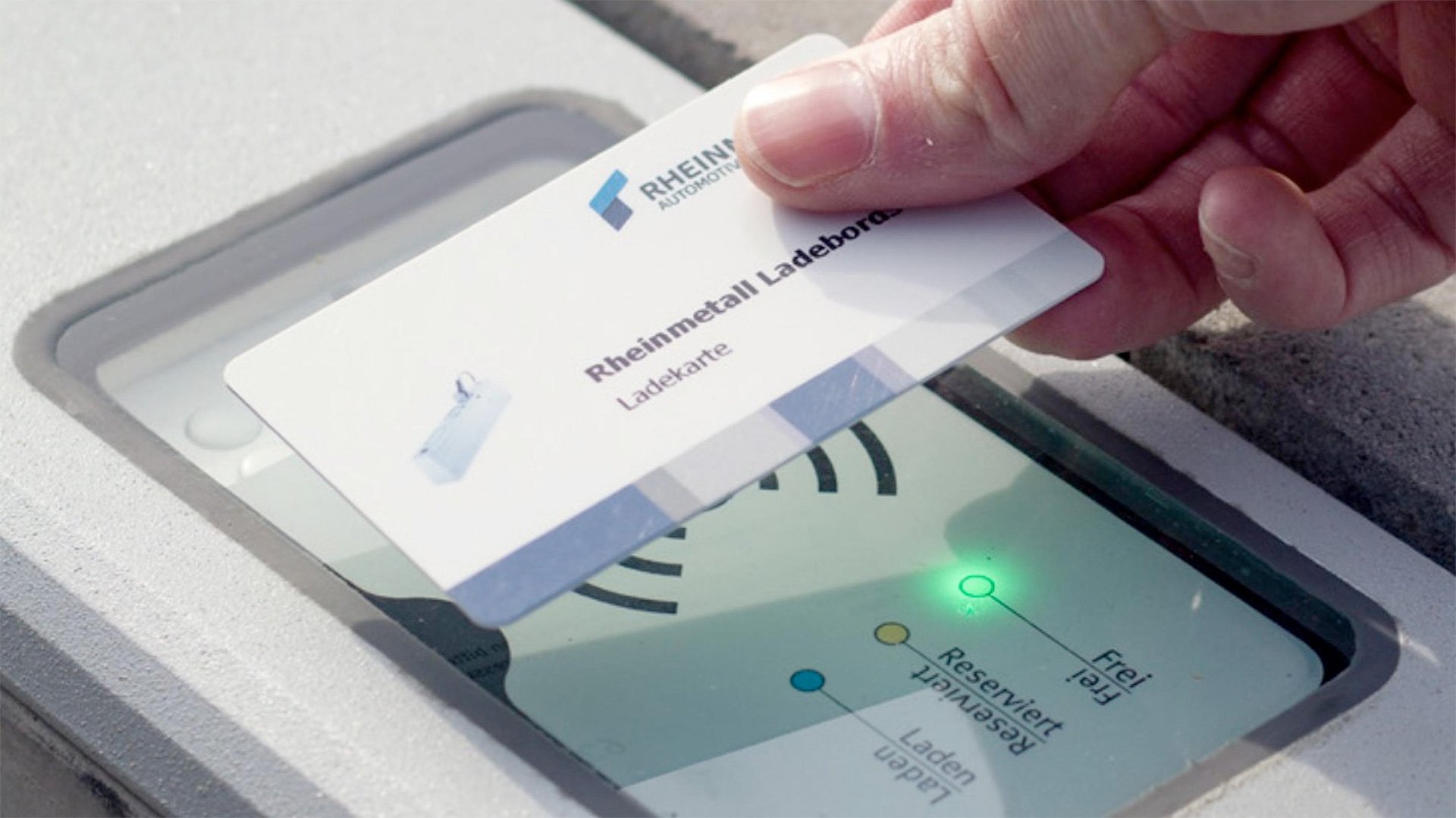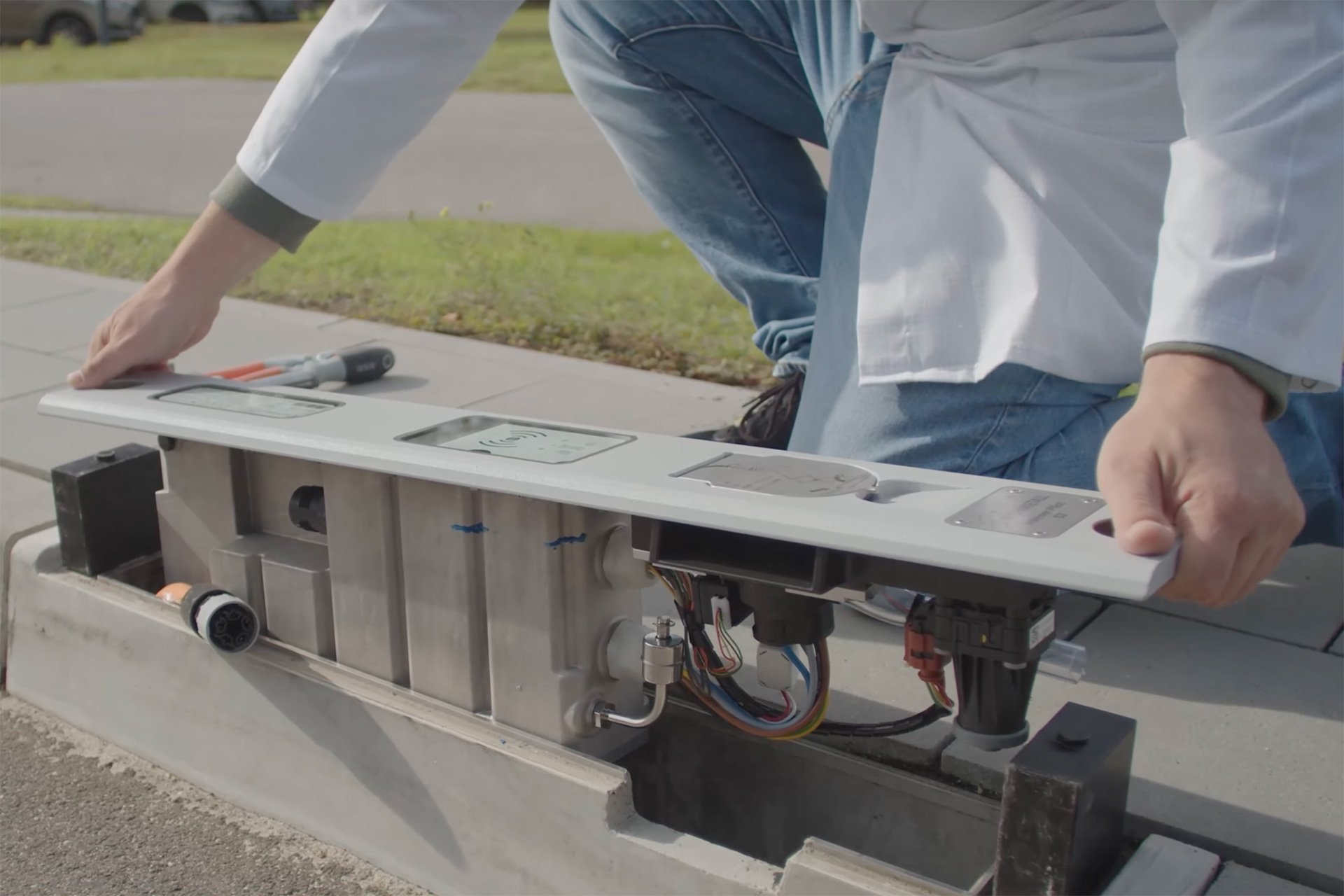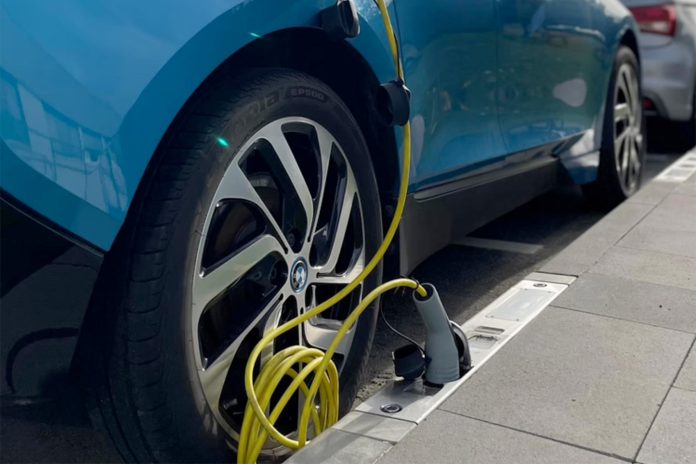As electric vehicles continue to grow in popularity, one persistent challenge in urban environments is the availability of unobtrusive, accessible charging infrastructure—especially for apartment dwellers without private driveways. Addressing this, German automotive and defense firm Rheinmetall AG has developed a curbside EV charging solution designed to integrate directly into the sidewalk itself.
The company’s Curb Charger, first introduced at an e-mobility conference in 2022, is a Level 2 charging station built into a standard curb segment. Constructed from steel and aluminum, the unit replaces a section of conventional concrete curb and offers EV charging capabilities without disrupting the pedestrian environment. Unlike more visible pole-mounted solutions from companies like Gravity or Ubitricity, the Curb Charger is designed to blend into the cityscape almost invisibly.
“Rheinmetall curb chargers blend into the cityscape almost invisibly, offering a solution to the challenges posed by existing charging systems, such as large space requirements, low point density, aesthetic downsides, and high cost,” the company stated in its original press release.
Each module is equipped with modern features including a 4G modem, Ethernet connectivity, RFID capability, and a display. It can be activated by users either through a dedicated mobile app or by scanning a QR code. While users must provide their own charging cable—common practice for many European EV drivers—the charger is capable of delivering up to 22 kW of power.

Designed for durability and year-round usability, the Curb Charger is IP68-rated for water and dust resistance. It also includes an internal cooling system to prevent overheating during high usage and an integrated heater to ensure functionality in sub-zero temperatures. The modular system allows for quick replacement of defective units using a “CurbSwap” connector, minimizing downtime.
In partnership with TankE GmbH, Rheinmetall deployed four of these chargers in the Cologne-Lindenthal area for a year-long pilot program. According to recently published results, the units operated successfully more than 99% of the time across all weather conditions. In total, the chargers handled over 2,800 charging sessions, averaging about two top-ups per day per unit.

Over the course of the pilot, the system delivered more than 50 megawatt-hours (MWh) of energy to electric vehicles. Each session averaged 19 kilowatt-hours (kWh), which corresponds to a moderate battery top-up suitable for daily city driving.
User feedback from the trial was largely positive. Participants rated the system an average 4.38 out of 5, with high marks for ease of use, intuitive design, and the ability to operate the charger single-handedly. Users also appreciated the fact that the system did not require protective bollards and maintained street aesthetics. The main criticism involved the visibility of the charger, which some found lacking due to its low-profile design.
Christoph Müller, CEO of Rheinmetall Power Systems, emphasized the broader implications of the technology:
“Our product integrates the charger electronics into a standard Kerbstone to enable the charging of electric vehicles directly at the roadside – without obstructive bollards, intrusion into the pedestrian area, or compromises in terms of safety or aesthetics,” he said.
“This is how we are contributing to the mobility transition with innovative solutions. Our developed Curb Charger is a series-ready product. By this, urban charging infrastructure is rethought: space-saving, robust, barrier-free – and integrated into existing urban structures.”

Following the pilot, the four Curb Chargers in Cologne have now been transitioned to regular operation. Rheinmetall is also showcasing the technology at trade shows, aiming to attract interest from other cities and infrastructure providers looking for space-efficient ways to expand EV charging access.
Source: Rheinmetall



